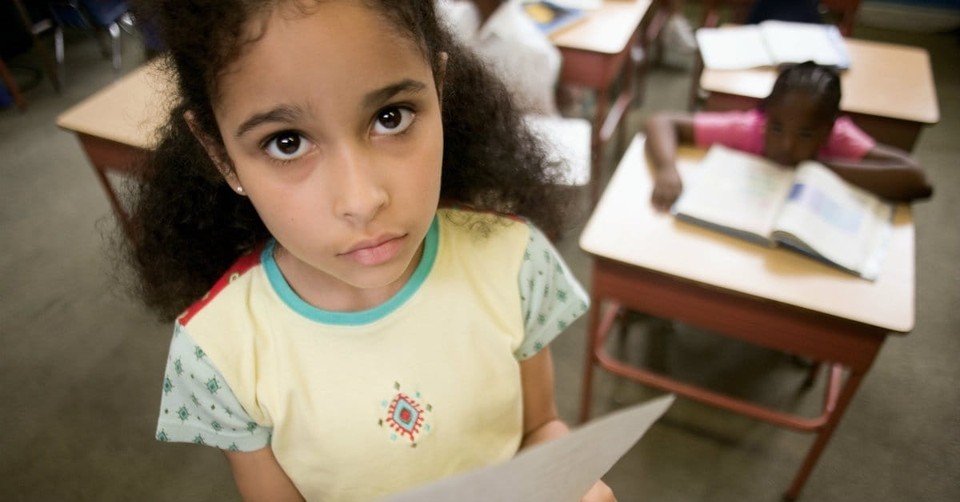Are You Raising Your Kids to be Anxious?

Are we raising our kids to be anxious? There’s a question for our times.
I remember when our family balanced multiple sports and boys’ choir, plus schoolwork, church, and social activities. It was a busy lifestyle as our three sons grew into tweens and then teenagers with the accompanying peer pressures to boot.
We experienced 90s-style stresses. Along with daily homework, we faced the occasional craziness of a bigger school project. And every now and then, our boys would make comparisons such as “I’m not as smart as so-and-so.” But for the most part they enjoyed a moderate level of demands that nurtured character growth, mental and physical strength, and faith. And they still had plenty of down time at home.
I have fond memories of how our activities and our schedule actually promoted personal and family identity and self-esteem. Even the extra busyness of traveling sports teams provided opportunities to do life with other families and allowed our boys to see that Dad and Mom were interested in them and were pretty normal and maybe not so different from their friends’ parents.
And when I grew up in the Dark Ages, life was pretty simple. Sure, we had the Cuban Missile Crisis when we practiced school drills and hid beneath our desks. And the day when President Kennedy was assassinated jolted our sense of calm; that was the first time I saw my father cry. So yes, I recall feeling anxiety on occasion.
But today I hear stories that make me weary. Several phrases come to mind: abundant opportunities, instant everything, overwhelming schedules, countless distractions, lots of stress. Has that much changed to create the drain many families battle? And how are today’s kids really doing?
I wonder where the margin is when the school day is an hour longer than in generations past; when P.E., music, and art are removed from the curriculum to promote increasingly demanding academics; when the youth who can play on middle-school and high-school sports teams have been doing elite training—meaning travel teams most weekends and all the dollars to go along with that—since early elementary days.
Sometimes it appears that the lives of today’s youth are measured by performance and jam-packed scheduling. It seems that activities and commitments that should be fun actually become a source of anxiety. I wonder if we’re heading down a path the next generations may regret.
If we don’t guard time for our kids to simply be people, as well as to bond as a family, how can we send any other message to them than one that claims their self-worth is determined by their productivity and accomplishments?
And then there’s modern technology, spearheaded by the all-consuming Internet. Granted, it offers much—through it we can connect with the world, and quickly. But I’m not sure quickly always equates with better.
We read more and more stories that raise concerns about the time our young people spend with electronic devices. What might those conveniences be costing their overall well-being, their ability to fully engage in person with another human being? Do they even know how to wait, to be calm, to thrive without entertainment?
A youth worker told a story recently about the response of a few teens when she asked how often they get together with most of their Facebook friends. Their faces showed near horror. “Oh, that would be weird. I wouldn’t know what to talk about.”
A recent article on www.sohm.org titled “5 Reasons Your Kid Should Not Have a Cell Phone” cited a study published in the journal Computers in Human Behavior, which found that sixth-graders who went five days without exposure to technology were significantly better at reading human emotions than kids who had regular access to phones, televisions, and computers. The article claimed that, in addition to privacy concerns, cyber-bullying, and inhibited true social interaction, too much cell phone and social media time has been linked to poor academic performance and more anxiety.
I’ve got to wonder whether allowing the extras to become the essentials is messing with our kids. The most important things in life are not basketball or baseball or mastering the violin. The true measures of worth don’t hang on acing standardized tests, surpassing the next kid, or having the latest techy luxury to replace face-to-face people time. The real must-haves are a close connection with Jesus as Savior and meaningful relationships (Matthew 22:37-39).
How can we make sure our kid’s relationships are deep and meaningful? How can we ensure that those relationships make a difference in their lives, especially when triggers for anxiety abound?
First off, we can draw them to Jesus, the source of true freedom from anxiety. Adding family Bible and prayer times to the weekly schedule prioritize faith and ensure positive time together. Through our example, young people can learn there’s joy to be found in connection with him. A connection that offers freedom from the pressures and anxiety they may be facing. Once-a-month dates with your kids can also create an atmosphere of communication, offering them a time when they can expect to be heard and to receive encouragement knowing we’re in this with them.
Finally, we need to stay in their space more than they might welcome. Set and enforce boundaries that give them real freedom even if they complain of restrictions, because real freedom is found in the security of love. We ought to be their best earthly model of God’s love for them. When they learn to understand his love through us, they’re armed with the greatest defense against any anxiety.
Alan M. Hallene Jr. and Erin Keeley Marshall are the authors of Hope of Heaven: God’s Eight Messages of Assurance to a Grieving Father. For more information, visit www.HopeofHeavenBook.com.
Publication: May 1, 2015
Originally published June 17, 2016.




